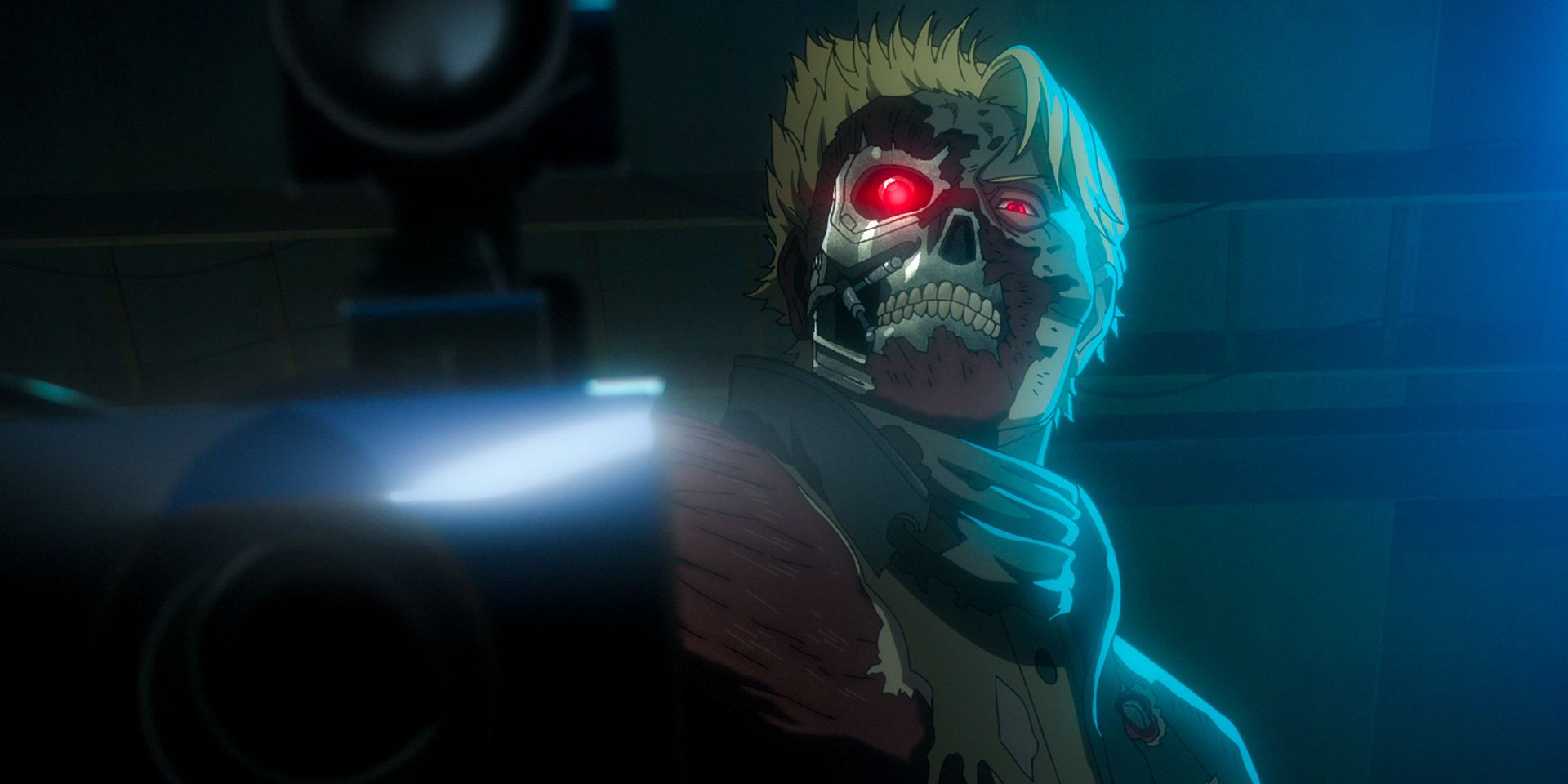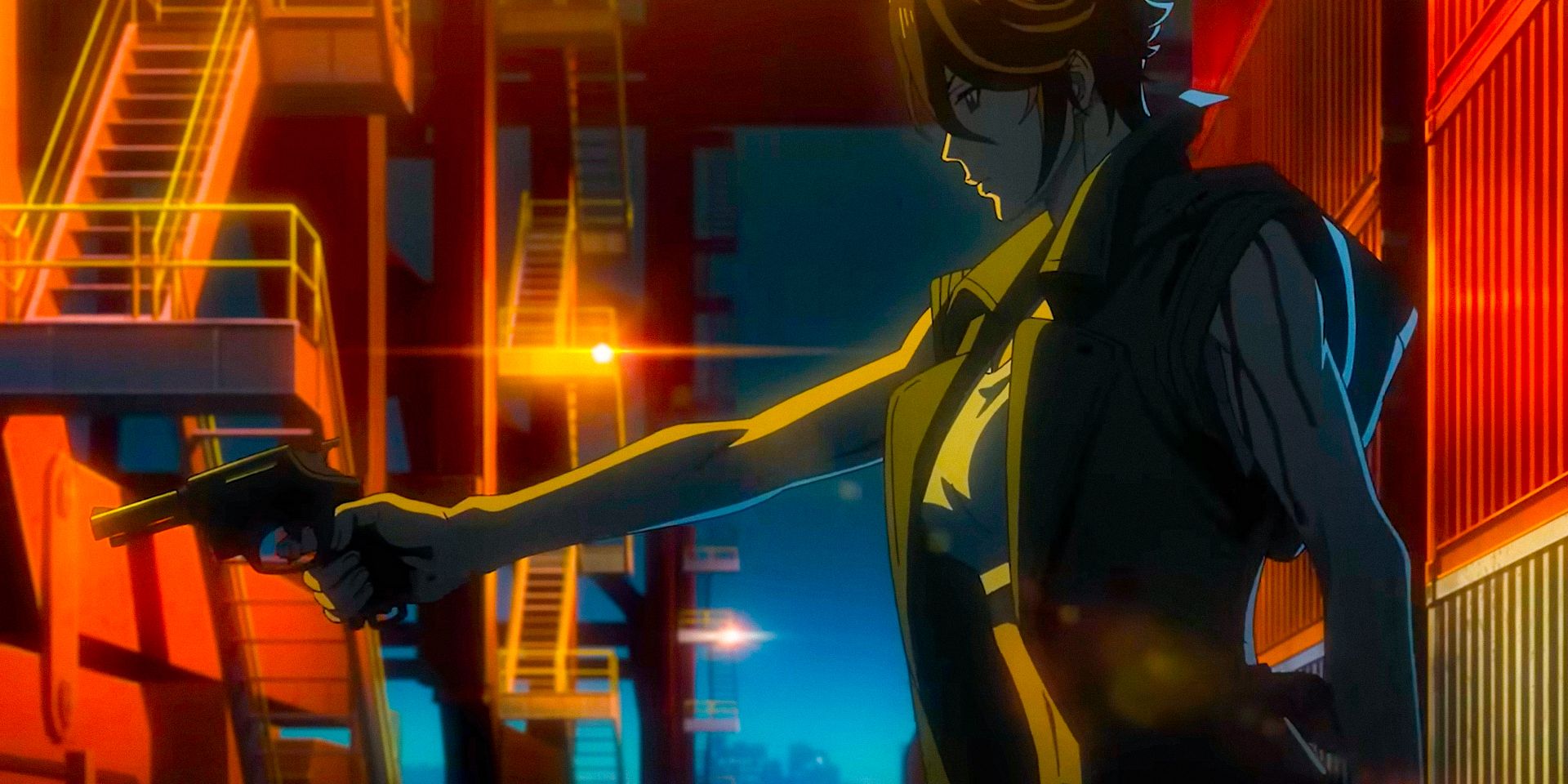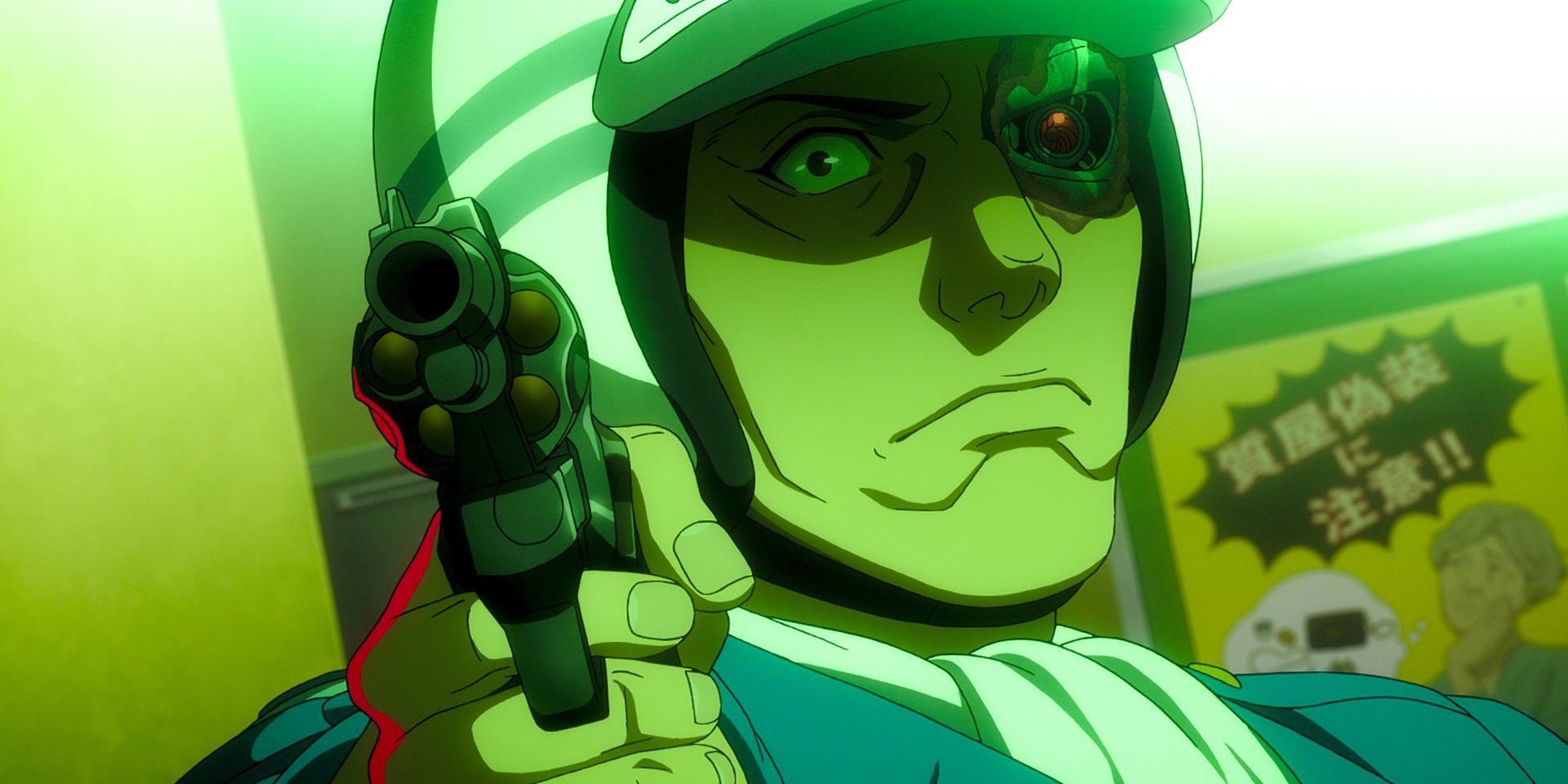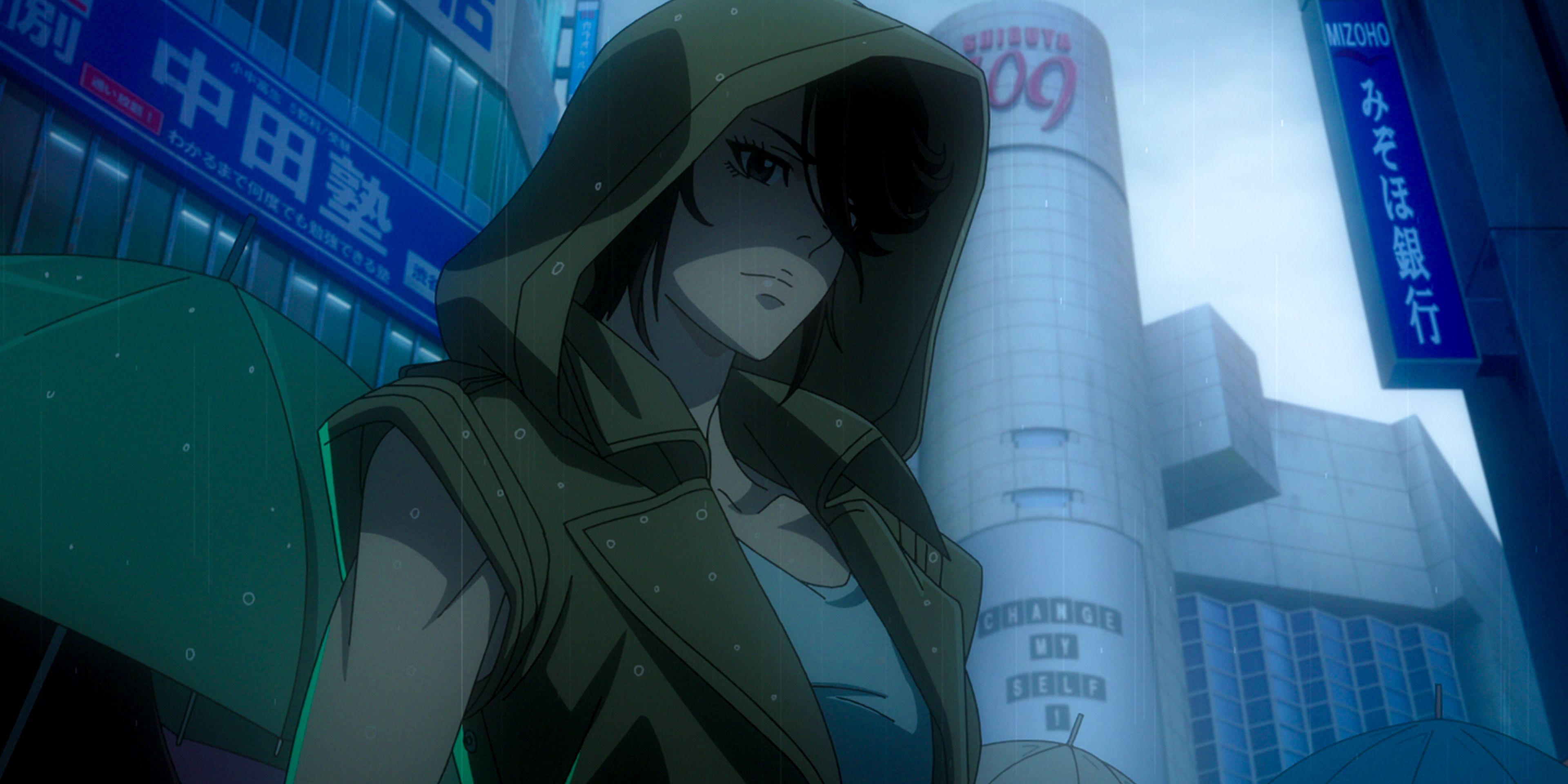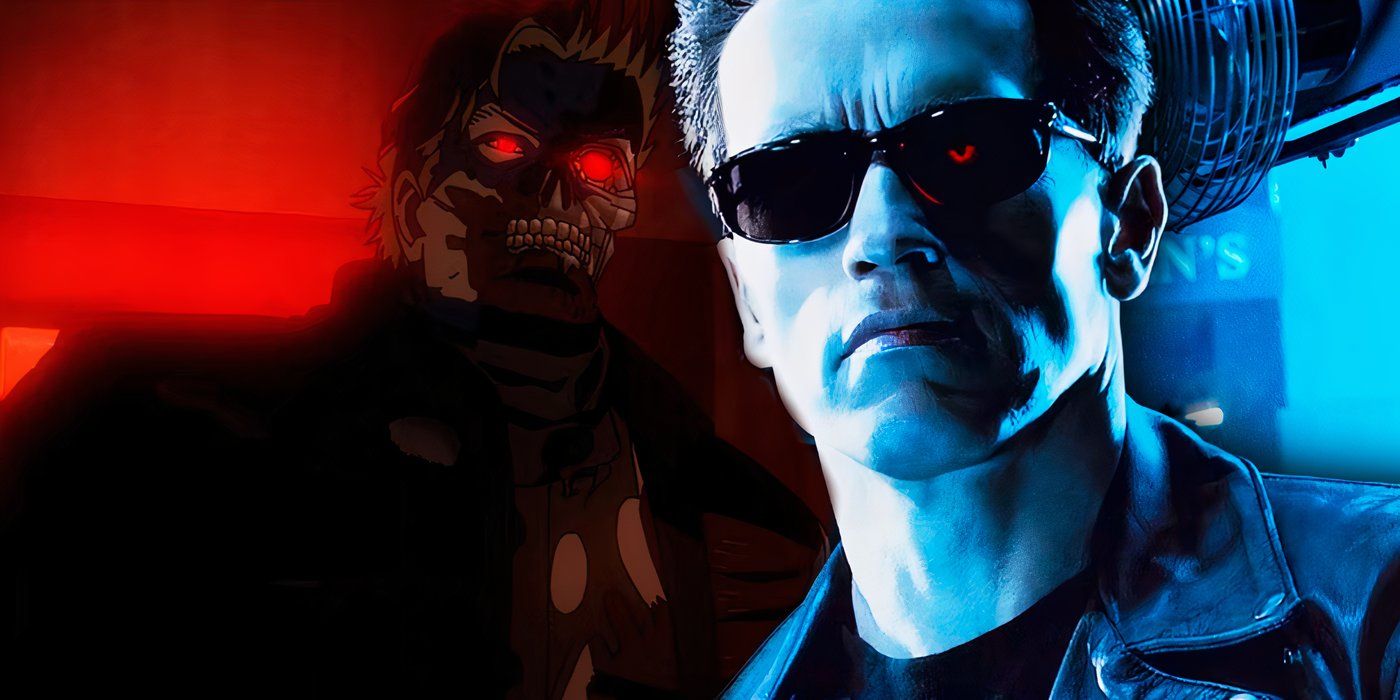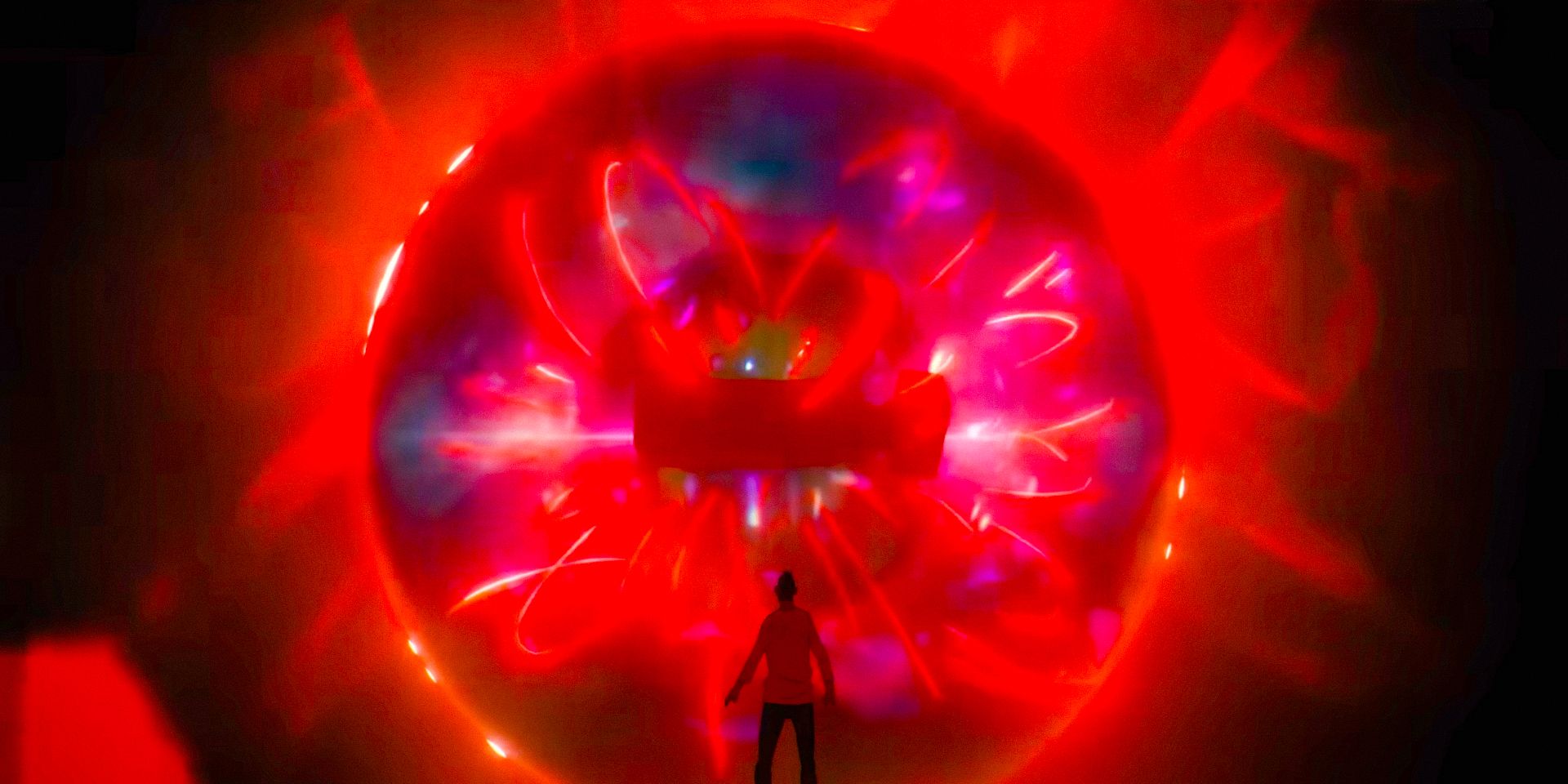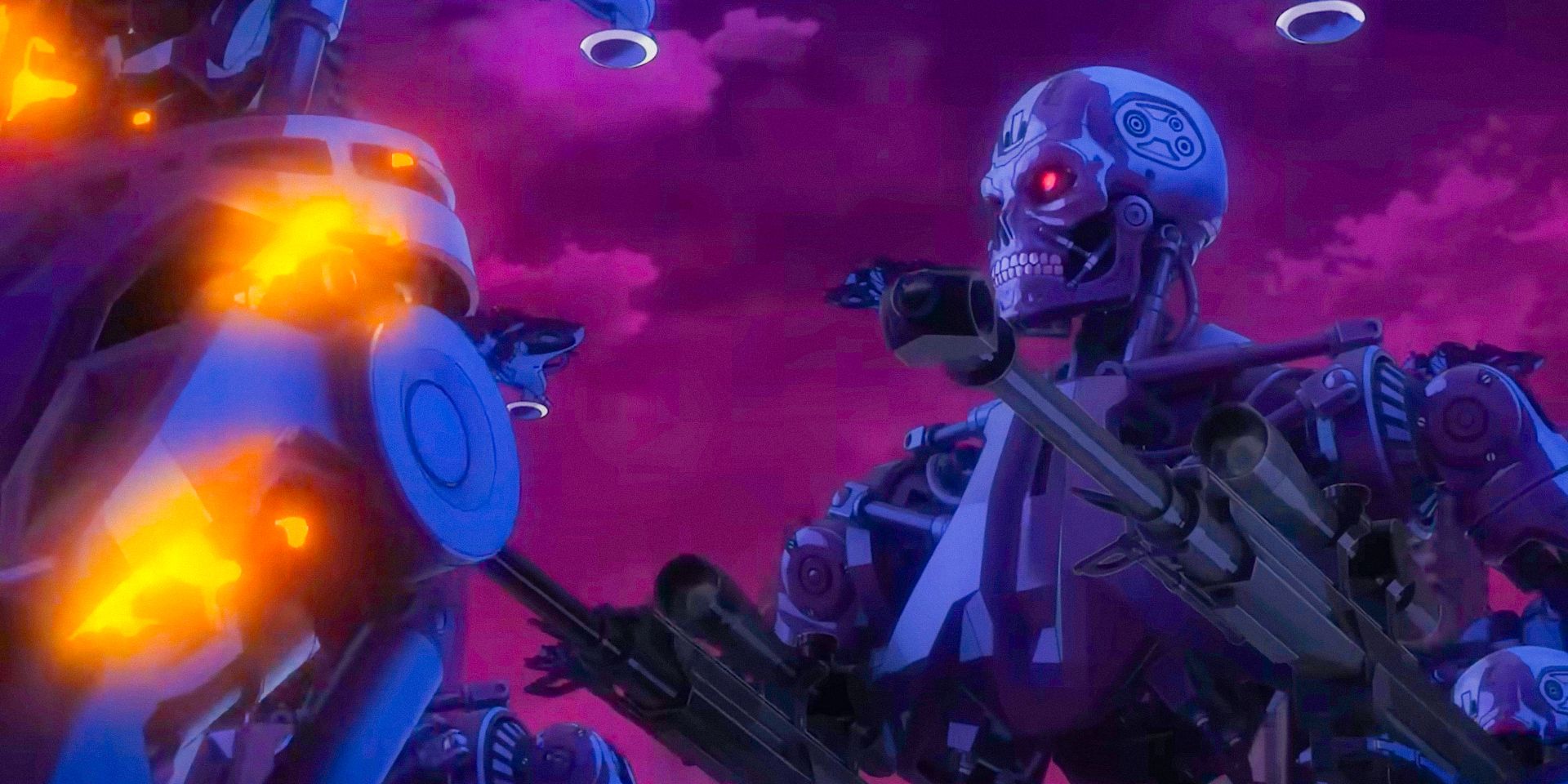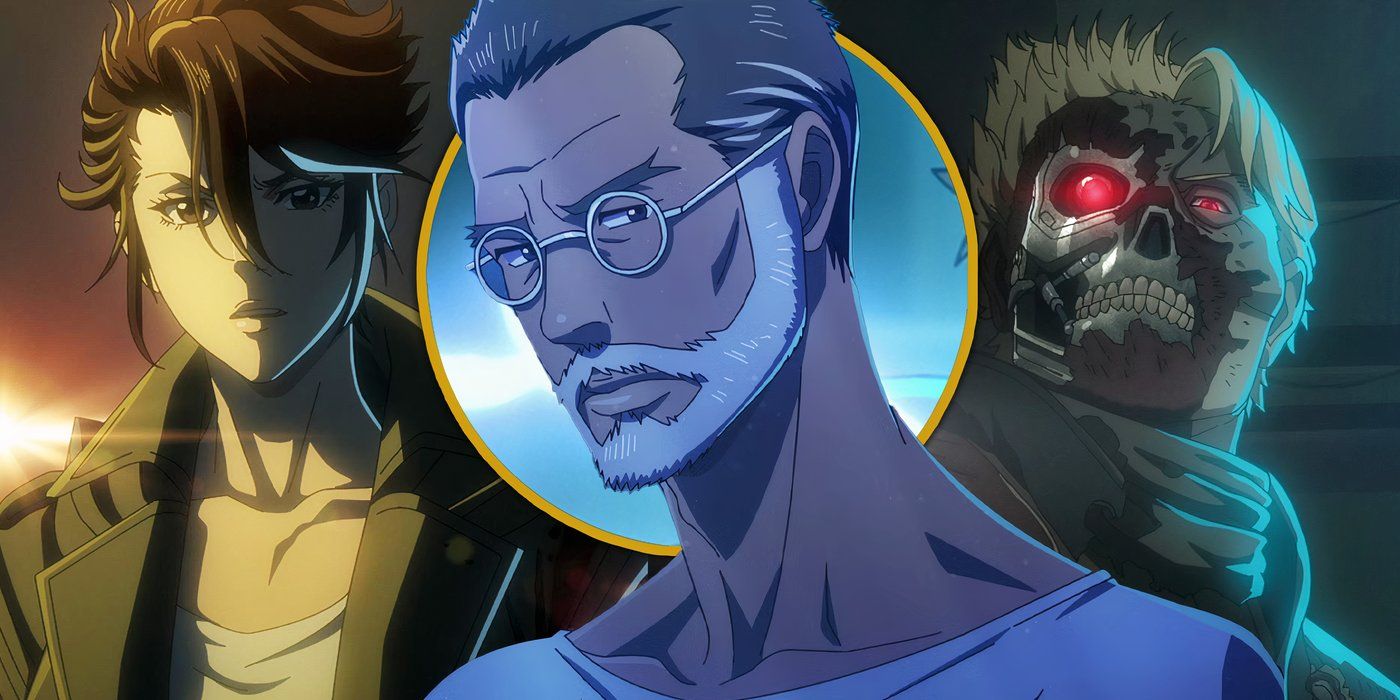
The Terminator Franchise goes anime Terminator ZeroA new Netflix series developed by Mattson Tomlin. Set in Japan, Terminator Zero Tells the story of Malcolm Lee, a scientist who develops a rival to Skynet, and his family, who soon find themselves pursued by a robot killer. The eight-episode series boasts a cast that includes Timothy Olyphant, Rosario Dawson, André Holland and Sonoya Mizuno.
As seen in the US Terminator Zero Trailer, the series is a big departure from all the projects that came before. Despite still being rooted in the Terminator universe, Terminator ZeroThe art style, the Japanese language narrative and the alternative to Skynet all signal a new step for the franchise. The list of exciting new elements extends to the series music, which is contributed by the composing team of Michelle Birsky and Kevin Henthorn.
Related
Birsky and Henthorn are a married composing duo whose past work includes The Lesbian Bar Project And Mother / Android. The couple continued from the past Terminator Movies for musical inspiration, but also drew on their indie band roots to create a sound unique to the anime. In conversation with Screen RantBirsky and Henthorn reveal their instrumentation choices, reflected on how Terminator Zero Fits into the larger franchise, and more. Screen Rant is also excited to present a piece from their soundtrack for the series titled "It Will Never Be The Same".
Michelle Birsky and Kevin Henthorn reveal their musical influences and collaborative process
Screen Rant: This feels unlike any other Terminator project. Coming to this, where did you look for musical inspiration?
Kevin Henthorn: We were inspired a little bit by Terminator 1. We took the metal hits to immediately identify, "This is Terminator," and some synth inspiration, but instead of going super '80s with the synths, we're pretty modern.
Michelle Birsky: Mattson also made it clear that he wanted this to be a darker Terminator, with a bit more of a serial killer vibe and a lot of existential dread. It really is about man versus machine in the most profound way. We are really inspired by Radiohead.
Kevin Henthorn: I feel like there's no quicker way to existential dread than listening to Kid A. We'd play it a lot. It would help us get centered again. We combined a lot of those elements, and we wanted to stray from the OG Terminator stuff. We wanted something new. It was a completely new story.
Michelle Birsky: And it's anime. There was a lot of room to play with characters and different themes, and there's a lot of music, so it was nice to have that format. I think if it was live-action and it was a movie, it would have been harder, but because it was such a different format, we were able to explore.
What is your collaboration like?
Michelle Birsky: It's super collaborative. When we get a project, we start by just jamming together. We both come from the indie band scene, so I think it's really natural for us to play instruments together and find things. We usually try to stay away from the computer, record on our iPhones, and get the ideas flowing.
Once we actually score to image... I know a lot of composers split cues. We don't do that. We either write together or we act apart. Someone is always at the computer and we act off on the same cue, which is just like an editing process at a certain point where you go back and forth and craft it until it is the best.
Kevin Henthorn: And it's kind of fun because, at this point, we don't really know who wrote what. It feels like the ego is stripped away and we just serve the bigger picture.
Terminator Zero's score helped shape the series' animation
The very, very beginning of the series is a very long sequence with a lot of music and no dialogue, so right off the bat, you two are responsible for shaping how it's going to feel. Was that a big weight on you two?
Kevin Henthorn: Yeah, but I feel like it's also really exciting. We got in so early with this series that I feel like our music was integral to how it was created. We created the demos we showed to Mattson before any scripts were even written. Me [thought]"Matson. Terminator. Anime. What does that sound like?" And we gave him some unsolicited materials.
He put it in a music library, where Production YG did all the anamatics, and they just started throwing in the demos. That gave us a lot of confidence because it was very daunting with a five-minute action sequence right off the bat.
Michelle Birsky: The piece was already there. It wasn't fully fleshed out, but they were animated to share it. It was hard to make it super long, change things and make it work, but because it was already in there, it definitely eased the fear.
Birsky & Henthorn discuss key themes and merge the organic with the robots
With the Terminator character, the music somehow made everything feel inevitable. It was very firm and suspension. How did you decide how to score this character?
Kevin Henthorn: To the determination, Mattson always wanted [it to feel like] We're in the Terminator's headspace and we're not deviating. One thing he keeps bringing up is—I think it's in T2—a hallway scene where things slow down, the Terminator is there, and it's just this slow, repetitive sound. I think that type of spirit was something that we definitely brought to the character.
Then, we also started exploring different motifs that would clearly tell you, "The Terminator is here." We had a two-note motif, almost like Jaws, and we would have certain sound effects that would come in, and radar sounds for when he was on the hike. We just stuck to a set of motifs for it.
In terms of instrumentation, can you talk about what you used? Did you draw any classic synths or was it all more modern equipment and techniques?
Michelle Birsky: It was all quite new, I would say. I think the one very similar sound is the metal heat that we use. We sampled that ourselves. I think we used pots and pans and the metal side of our instrument stands - hitting them with drumsticks and then sampling them - and then obviously made them sound a lot bigger.
Kevin Henthorn: We used the Prophet Rev 2 for a lot of the arpeggiated stuff, but I also feel like we're pulling from a lot of different synths. We definitely pulled a lot of Pigments, the Arturia plugin, but it's also kind of a haze of... there must be 20 or more, different synths on this score.
Michelle Birsky: The other piece of it besides the synthesizer stuff was creating sound with voices. We did a chorus, which was really, really cool. We recorded with the London Contemporary Orchestra, [and] Because the human voices were awesome. Then we also have a lot of manipulating acoustic instruments and voices. so, [we’d use] A guitar, a cello, a violin, and samples them and reverses them. One of the Terminator sounds is a reversed, chopped-up violin. There was a lot of taking what was pure and natural and messing with it with computers.
Why did you want to do this?
Kevin Henthorn: With the content, it just felt natural. We have the Terminator who is always in disguise trying to act like humans, and it just felt like we really wanted to play with the dichotomy of taking organic stuff and destroying it sonically.
How the "desolate and scary" future of Terminator Zero is made to sound different
It was like, especially in the beginning, there's a good bit of jumping between timelines. We see the 90s and the future. Did you want to create different sonic textures for different times?
Michelle Birsky: We definitely tried to make the future sound very, very different from the '90s, because the future is more desolate and scary -
Kevin Henthorn: And also more human. We made many choirs for the future.
Michelle Birsky: And a lot of bells, and a flute... It was a lot more reverb-y and waste. Every time we went there, we had some kind of difference between the two. That being said, there are instruments that carry over to tie it together and to tie the characters together, but we wanted to make sure that the future had its own distinct sound.
This one musical Terminator Easter egg made it into Terminator Zero
Have you ever tried or asked to incorporate any sort of musical easter eggs into the legacy of Terminator?
Michelle Birsky: There's one cue we love, [where] Production IG and the director, (Masashi) Kudo, really, really wanted the original drum line from Terminator 1 to be in it. It's in the last scene of episode one in our version of the Terminator theme, and it ends with that drumbeat.
Michelle Biersky creates a great arc for one key character
Do you have a favorite aspect of the show to score?
Michelle Birsky: I think it's different for both of us. I really like the character of Misaki, who is the nanny for the children. She probably has one of the bigger character arcs throughout the series. Many things happen to her, and she changes drastically. We helped her theme early on and then we stripped it down. In the first episode, you just hear this little piano motif that is a few notes, and then how it gets bigger and bigger. As her character changes and more things happen to her, we brought in the chorus to really flesh it out. At one point in the show, there's an acapella scene where the vocals are just doing all these crazy technique things, and that's my favorite. It's just like one minute, but it's really cool to be able to change the character so much over the course of the series, and have the music evolve with you.
Kevin Henthorn: The character work was really fun because in anime you just feel like you can be pretty bold and big for the characters. We went for it for a lot of these. For me, I loved scoring Terminator on the storm. At the beginning of episode three, there's a long, non-dialogue scene, and it was really fun to get inside his head. It was like all of a sudden, we were watching Seven or something, and it just felt very fun and serial killer vibes.
Terminator Zero is "new territory" for the franchise
There are so many Terminator Fans out there. I know this is his own thing, but is there anything you can say to people who are wondering how you can fit in with everything else that's out there?
Kevin Henthorn: I feel like we're in new territory, and the franchise, I believe, has needed new territory for a while. I hope fans are excited and welcoming [of] it. It's not completely divorced, it's still Terminator, but I feel like it's a different take on the story. It's family-based, it's really emotional, and I hope people are excited.
About Terminator Zero
2022: A future war has raged for decades between the few human survivors and an endless army of machines. 1997: The AI known as Skynet gained self-awareness and began its war against humanity.
Caught between the future and the past, a soldier is sent back in time to change the fate of mankind. She arrives in 1997 to protect a scientist named Malcolm Lee, who is working to launch a new AI system designed to compete with Skynet's impending attack on humanity. As Malcolm navigates the moral complexities of his creation, he is hunted by an unrelenting killer from the future who forever changes the fate of his three children.
Check out our others Terminator Zero Interview with:
